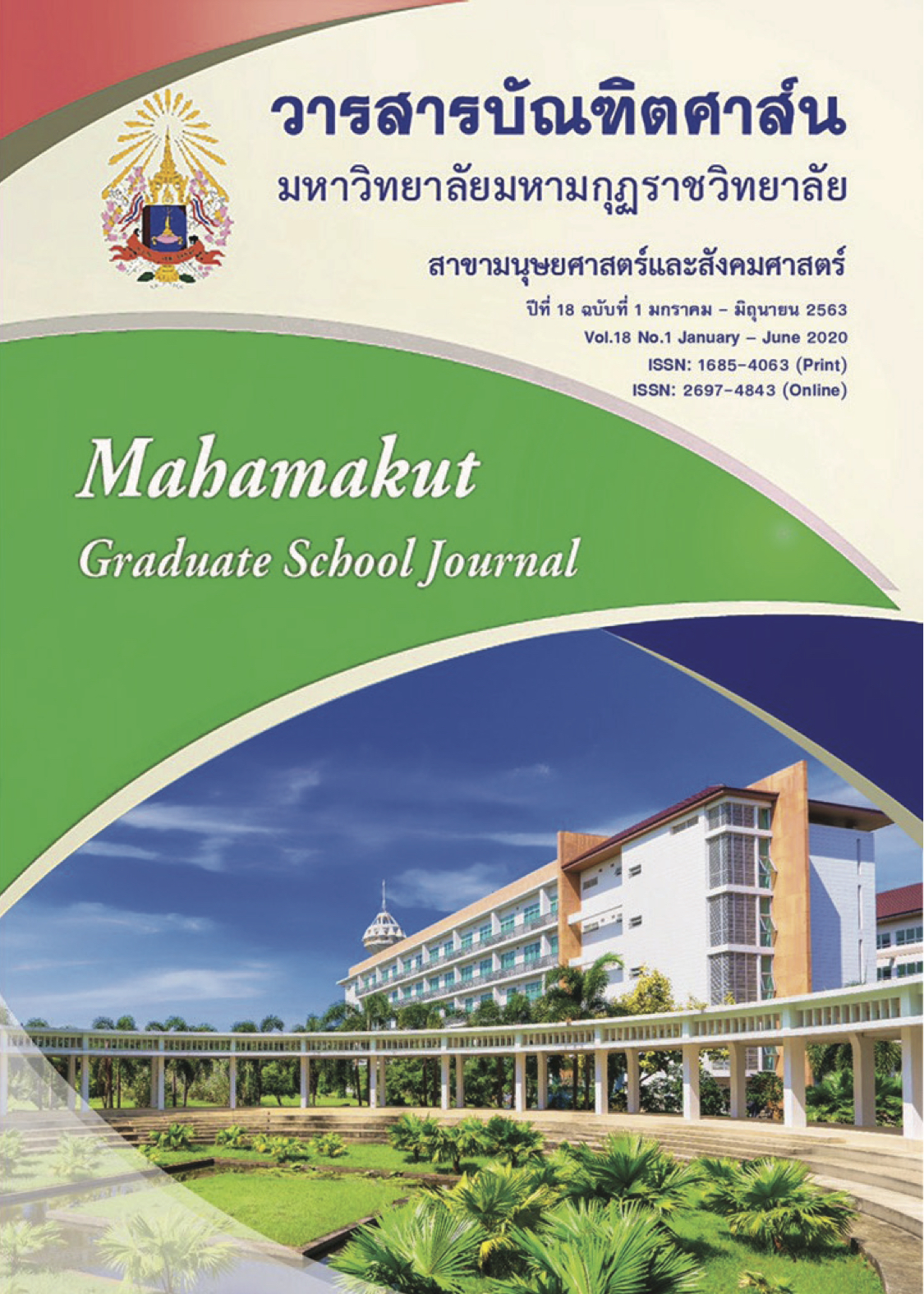THAI ELECTION REFORM
Keywords:
1. Reform, 2. Thai ElectionAbstract
This research aims 1) to study the power of election management 2) to study the electoral system 3) to study the solution to the problem of election. The group of sample are consisted of 14 members of the election commission by using qualitative research. The research instrument are a structured in-dep interview analyze data by content analysis and conclusions.
The research found that
1.Electoral power belongs to the electoral commissioner. The law gives an authority to organize the election. As well as the investigation, punish the offender including disqualification of non-voting citizens, which is the total privilege without counter balance should be balanced to punish the power of the judiciary.
2.The electoral system is 1) the electoral constituency single sector single voter choose candidates for a single number. Candidates with the highest scores is going to be MPs for that sector. 2) A constituency number is the number of voters who cast their ballots to the candidates according to the number of members of the House of Representatives in the constituency. Candidates with the highest scores according to the number of MPs in that district is going to be a member of the House of Representatives in that constituency. 3) The proportion is divided into 8 groups of provinces. Select a political party that sends a candidate in the provincial election.
3.The solution to the election problems are that the election must be honest and upright by election commission to create a sense of democracy to the people. Candidates must have ethics, the punishment for the offenders must be categorical and courage to recruit personnel to fill in according to the capacity to have enough people to work.
References
นรนิติ เศรษฐบุตร และ นิยม รัฐอมฤต. (2560). การเลือกตั้งแบบแบ่งเขตและแบบสัดส่วน. (ออนไลน์). แหล่งทีมา : http://wiki.kpi.ac.th/index.php?title=การเลือกตั้งแบบแบ่งเขตและแบบสัดส่วน. 29 สิงหาคม 2560
บุญศรี มีวงศ์อุโฆษ. (2555). แนวทางการปฏิรูประบบการเลือกตั้งและพรรคการเมือง. กรุงเทพมหานคร : บริษัท เอ.พี.กราฟฟิค ดีไซน์และการพิมพ์ จำกัด.
ประพันธ์ นัยโกวิท. (2551) บทบาทและอำนาจหน้าที่ของคณะกรรมการการเลือกตั้ง. กรุงเทพฯ : สำนักงานคณะกรรมการการเลือกตั้ง.
ภัทรมน เพ็งส้ม (2553). ปัญหาและอุปสรรคในการจัดการเลือกตั้งสมาชิกสภาผู้แทนราษฎร : กรณีศึกษาการเลือกตั้งสมาชิกสภาผู้แทนราษฎร เขตเลือกตั้งที่ 2 จังหวัดนนทบุรี. กรุงเทพมหานคร : สำนักงานคณะกรรมการการเลือกตั้ง.
ทินพันธุ์ นาคะตะ.(2551). รัฐศาสตร์ : ทฤษฎี แนวความคิด ปัญหาสำคัญ และแนวทางการศึกษาวิเคราะห์กรุงเทพมหานคร: ห้างหุ้นส่วนจำกัด สหายบล็อกและการพิมพ์.
ทีมการเมือง. (2560). วางกลไกเลือกตั้งยุคเปลี่ยนผ่าน. กรุงเทพมหานคร : หนังสือพิมพ์ไทยรัฐ.
วิทยากร เชียงกูล (2551). ปฏิวัติประชาธิปไตยเพื่อแก้ไขวิกฤติของชาติ. กรุงเทพฯ : โรงพิมพ์เดือนตุลา.
วิศิษฐ์ ทวีเศรษฐ และคณะ.(2552). การเมืองและการปกครองไทย. กรุงเทพมหานคร : สำนักพิมพ์มหาวิทยาลัยรามคำแหง.
สมเกียรติ วันทะนะ. (2551). อุดมการณ์ทางการเมืองร่วมสมัย. กรุงเทพฯ : เอส.พี.วี.การพิมพ์ (2550).
สมชัย ศรีสุทธิยากร.(2560). 5 ประเด็นปัญหาร่างกฎหมายเลือกตั้ง. http//www.thaich8.com/news_detail/44045/ สมชัย-ยก-5- ประเด็นปัญหาร่างกฎหมายเลือกตั้ง ส.ส.
สมบัติ ธำรงธัญวงศ์. (2543). การเมือง : แนวความคิดและการพัฒนา. กรงเทพฯ : สำนักพิมพ์เสมาธรรม.
สมภพ ระงับทุกข์. (2560). อย่าให้ปฏิรูปการเลือกตั้งครั้งนี้…นับหนึ่งถึงหนึ่ง. กรุงเทพมหานคร : หนังสือพิมพ์มติชน
สุภางค์ จันทวานิช.(2551). วิธีการวิจัยเชิงคุณภาพ. กรุงเทพมหานคร : บริษัทด่านสุทธาการพิมพ์.
อนุศักดิ์ คงมาลัย. (2552). รูปแบบการร้องเรียนและพฤติกรรมของประชาชน กรณีการทุจริตการเลือกตั้งในระดับต่างๆในยุคคณะกรรมการการเลือกตั้ง. กรุงเทพมหานคร : สำนักงานคณะกรรมการการเลือกตั้ง.
Downloads
Published
How to Cite
Issue
Section
License
บทความวิชาการและบทความวิจัยในวารสารฉบับนี้ถือเป็นความรับผิดชอบของผู้เขียนเท่านั้น บทความที่ได้รับการตีพิมพ์ในวารสารบัณฑิตศาส์น ถือเป็นลิขสิทธิ์ของมหาวิทยาลัยมหามกุฏราชวิทยาลัย ตามพระราชบัญญัติลิขสิทธิ์


